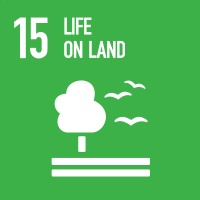Studying at the University of Verona
Here you can find information on the organisational aspects of the Programme, lecture timetables, learning activities and useful contact details for your time at the University, from enrolment to graduation.
Study Plan
This information is intended exclusively for students already enrolled in this course.If you are a new student interested in enrolling, you can find information about the course of study on the course page:
Laurea magistrale interateneo in Viticulture, enology and wine marketing - Enrollment from 2025/2026The Study Plan includes all modules, teaching and learning activities that each student will need to undertake during their time at the University.
Please select your Study Plan based on your enrollment year.
1° Year
| Modules | Credits | TAF | SSD |
|---|
2° Year activated in the A.Y. 2023/2024
| Modules | Credits | TAF | SSD |
|---|
One module among the following| Modules | Credits | TAF | SSD |
|---|
| Modules | Credits | TAF | SSD |
|---|
One module among the followingLegend | Type of training activity (TTA)
TAF (Type of Educational Activity) All courses and activities are classified into different types of educational activities, indicated by a letter.
Analysis of viticultural terroirs - VITICULTURE SOILS AND ROOTSTOCKS IN GRAPEVINE CULTIVATION (2023/2024)
Teaching code
4S009538
Teacher
Credits
3
Language
Italian
Scientific Disciplinary Sector (SSD)
AGR/13 - AGRICULTURAL CHEMISTRY
Period
Semestre IT_VEMV dal Dec 4, 2023 al Feb 16, 2024.
Courses Single
Authorized
Program
- The soil as an element of terroir (myth or reality?).
- The main characteristics of soil (granulometry, organic matter, pH, C.E.C.) and of the environment (e.g. water availability) and their influence on the terroir.
- The rhizosphere as key element of the grapevine-soil interaction.
- The anomalous soils (acid, alkaline, saline, submerged) and their effects on the viticulture.
- The rootstocks and grapevine mineral nutrition. The relation between cultivar and rootstock.
Bibliography
Didactic methods
The course will be delivered through face-to-face lectures.
Learning assessment procedures
The exam consists in an oral colloquium
Evaluation criteria
The exam is aimed at evaluating the student's knowledge of the whole program of the course paying attention to the depth of acquired knowledge and the ability to systematically connect topics. The mark will be expressed in 30-point scale.
Exam language
Inglese


